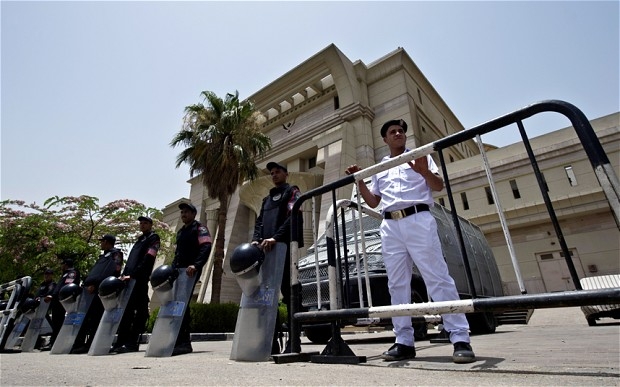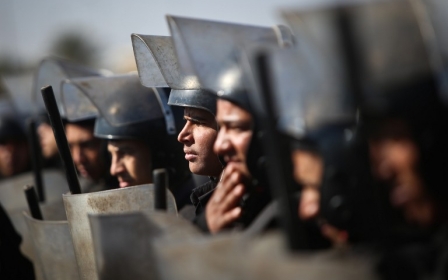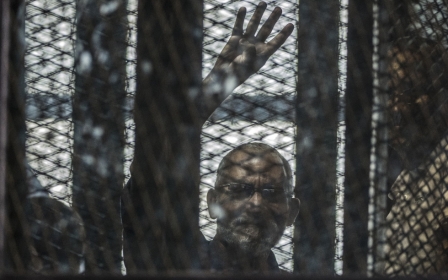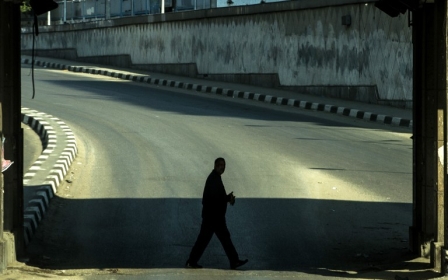Egypt court issues fresh mass death sentence for 188 defendants

Egypt’s highest religious authority is mulling death sentences for a group of 188 defendants, after a court passed sentence on the group on Tuesday.
The defendants are accused of involvement in the killing of 14 policemen in what has become known as the Kerdasa Massacre: on 14 August 2013, a group of about 50 people attacked the main police station in Kerdasa, just west of the capital Cairo.
In the aftermath of the attack, a criminal investigation found that armed men had besieged the station for five hours, and the bodies of some of the victims showed signs of torture.
The killings came just hours after the infamous massacres at Raba’a and al-Nahda Squares in Cairo, when Egyptian security forces stormed mass sit-ins in support of ousted President Mohammed Morsi, killing upwards of 800 protesters.
The opinion of the religious authority, the mufti, is not binding on the court, but Egyptian law demands that judges seek a religious opinion before any death sentence is pronounced.
The court is due to issue a verdict on 24 January.
Since the 2013 toppling of Muslim Brotherhood President Mohammed Morsi, Egypt's courts have handed down several mass death sentences.
Tuesday's decision comes despite the transfer of a top judge, who presided over thousands of mass death sentences for Morsi supporters, to a "civilian judiciary" in October, in a sign that top officials could be moving away from the strategy.
Amnesty International has previously warned that mass death sentences passed in the country are “alarming evidence of the Egyptian judiciary’s increasingly politicised and arbitrary attitude towards justice and the death penalty.”
Two mass trials in 2014 saw 1,200 people, largely Muslim Brotherhood supporters, sentenced to death. That ruling was “a breach of international law,” according to the United Nations, and 1,000 of the sentences have since been commuted to life.
The accused in the Kerdasa Massacre are widely suspected of having links to the Muslim Brotherhood, dubbed a “terrorist organisation” by Egyptian authorities after the group's leader, Mohammed Morsi, was removed from power in July 2013.
In response to Tuesday’s decision, the Freedom and Justice Party, the Muslim Brotherhood’s political party, decried the decision, which came “less than 48 hours after the ousted president is exonerated.”
The statement, issued on the party’s Facebook page, was a reference to the decision on Saturday to drop murder charges against former President Hosni Mubarak, who stood accused of complicity in the killings of 846 protesters during the 2011 uprising that led to his toppling.
Mubarak’s acquittal has sparked a wave of protests across the country, with two demonstrators shot dead with live ammunition in Cairo’s iconic Tahrir Square.
Middle East Eye propose une couverture et une analyse indépendantes et incomparables du Moyen-Orient, de l’Afrique du Nord et d’autres régions du monde. Pour en savoir plus sur la reprise de ce contenu et les frais qui s’appliquent, veuillez remplir ce formulaire [en anglais]. Pour en savoir plus sur MEE, cliquez ici [en anglais].




